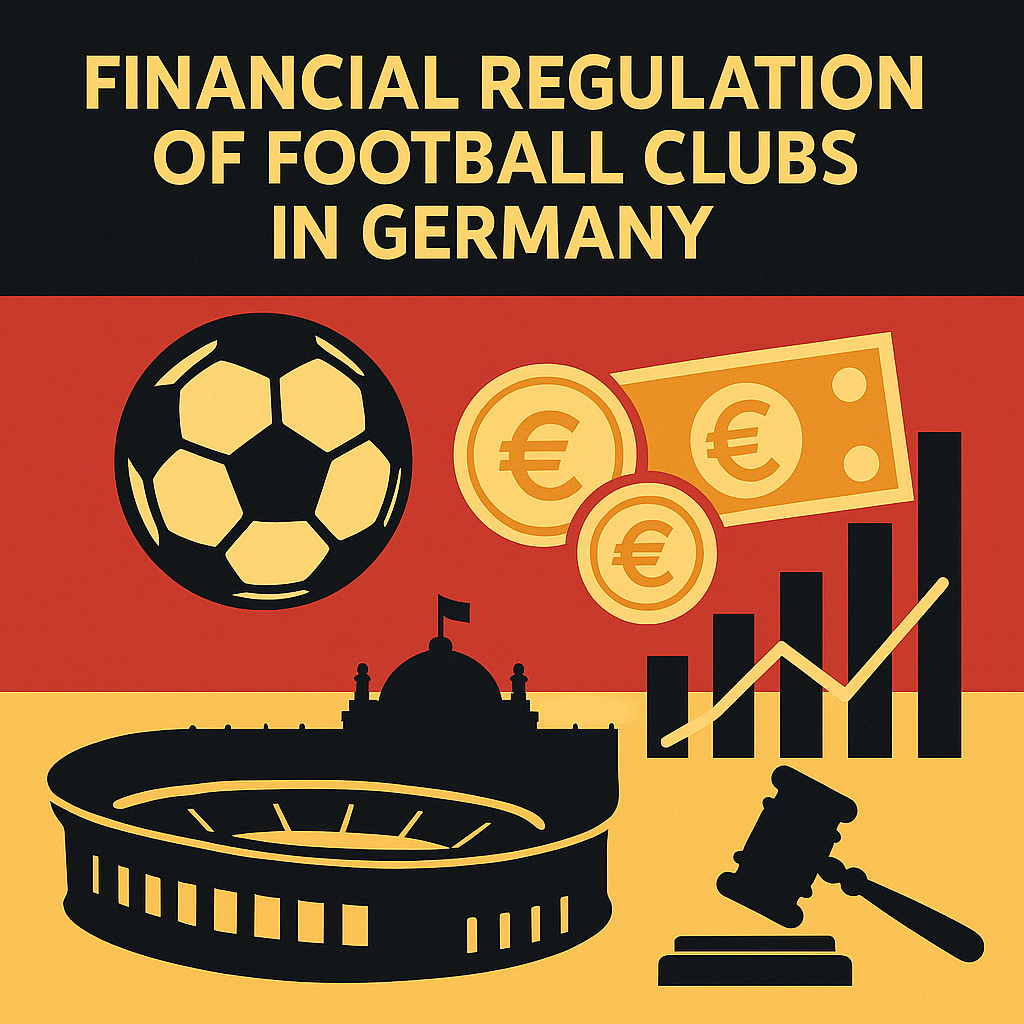FINANCIAL REGULATION OF FOOTBALL CLUBS IN GERMANY

Although association football is the world’s most lucrative sport, there is a need to regulate the financial affairs of football clubs at the international and national levels to provide stability.
Germany is no exception where there are a number of financial regulations that apply to football clubs. In fact, it is claimed that Germany has the most effective financial governance in football.
Perhaps the most important of these financial regulations is the so-called “50 + 1 Rule” (the Rule).
Under this Rule, which was introduced by the German Football Association (DFB) on 24 October 1998, the club’s member association, that is the non-profit organisation, must hold at least 50% plus one of the voting shares of the professional football company.
The rationale behind the Rule is to maintain fan influence and prevent clubs from being controlled by outside investors, thereby ensuring that clubs’ identities and values remain rooted in their membership. In other words, to safeguard the social dimension of football clubs in Germany in their local communities.
There is one exception to the Rule, which is known as the “Lex Leverkusen,” whereby third parties are allowed to hold majority voting shares, where they have supported the club for more than 20 consecutive years before 1 January 1999. Under the “Lex Leverkusen”, the clubs Bayer 04 Leverkusen and Vfl Wolfsburg are owned/controlled by Bayer AG and Volkswagen respectively.
The Rule, it is claimed, has helped German clubs to keep debts and wages under control and ticket prices relatively low when compared with those of other major European Football Leagues.
However, the Rule has been criticised, in some quarters, arguing that it limits investor incentives and potentially hinders the growth of German clubs.
The German Football League (DFL) also has its own regulations regarding financial stability, in particular, on spending and debt. Since its establishment in 1963, the DFL Licensing Committee examines each club’s fitness to participate in the League, according to certain financial and other criteria.
It should be mentioned that German football clubs are also subject to the same insolvency and restructuring rules as any other company incorporated in Germany.
German clubs are also subject to the UEFA Financial Fair Play (FFP) Regulations, which also aim to ensure that clubs do not spend more than they earn, with a view to preventing financial problems and improving the overall financial health of European football.
In fact, there are calls for greater transparency in German clubs’ finances, as, often, the details of financial developments are not in the public domain.
Furthermore, under the European Union Anti-Money Laundering Directive and Regulations of 2024, as a Member State, Germany is required to conduct comprehensive risk assessments and establish risk-based monitoring activities within the professional football clubs’ ecosystem.
We advise and assist on all these matters and, for further information, please email Oliver Fischer, the Head of our German Desk, at fischer@valloni.ch.